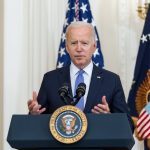North Korean leader Kim Jong-Un has taken his unique approach to accountability to new heights—literally. Reports indicate that he recently executed upwards of 30 government officials in response to devastating flooding that tragically claimed the lives of around 4,000 people. It seems when the going gets tough, the North Korean tyrant reaches for the guillotine, or whatever grim tool is closer at hand.
South Korean media is reporting that those executed faced charges of “corruption” and “dereliction of duty.” According to the North Korean Central News Agency, Kim directed a “strict punishment” for anyone who failed to mitigate the devastating effects of the flooding that struck Chagang Province back in July. For Kim, ruthless measures come naturally when attempting to make an example out of those perceived as ineffective in crisis management; after all, the old adage “the beatings will continue until morale improves” might as well be his motto.
NYP: Kim Jong-un orders the execution of 30 officials in response to floods in North Korea that claimed 4,000 lives. pic.twitter.com/QwhgBgd79b
— Open Source Intel (@Osint613) September 3, 2024
Interestingly, execution methods in Kim’s arsenal can vary dramatically. While some officials met their fate through a relatively tame decapitation, others have faced a far more explosive demise—literally. The leader’s penchant for sending rivals to the great beyond via anti-aircraft guns adds a unique flair to his (alleged) management style. This time, instead of a dramatic display of firepower, it appears Kim opted for a less dramatic affront to human rights, something akin to a macabre version of a corporate downsizing.
The motivation behind these lethal purges appears to be quintessentially Kim. Corruption is rampant in North Korea, a country where citizens joke that crossing the street necessitates a bribe. Public officials have reportedly redirected disaster relief funds for their own benefit, perhaps believing the regime’s unforgiving nature wouldn’t extend to their own pocketbooks. Instead of being concerned about their fellow citizens—who are often left to fend for themselves—these officials gambled with lives and are now facing the ultimate consequence. The examples made by Kim serve not just to quell dissent but also to instill a healthy dose of fear among those who remain.
Meanwhile, in the realm of sports, Kim’s obsession with ideological purity has extended even to Olympic athletes. Recent reports depict a regime utterly threatened by its people having too much fun and daring to interact with outsiders. Following the games, North Korean athletes have undergone an “ideological scrubbing,” ensuring they understand that any hint of camaraderie with non-North Koreans (especially from the South) could trigger harsh retribution. The recent medal ceremony, where players from both North and South Korea exchanged smiles and selfies, has now become fodder for Kim’s paranoia. It must be tough to lead a nation while fearing a ping-pong match could unwittingly undermine one’s iron grip on power.
In conclusion, while some might see Kim’s drastic measures as a step toward accountability, one can’t help but reflect on the far more benign, yet effective, methods employed in democratic nations. For instance, those responsible for the government’s mishandling of crises like COVID-19 are often met with congressional hearings rather than death sentences. But amidst the elected officials’ lack of real consequences, evidently, a little good old fashioned North Korea-inspired terrorism could inject some much-needed urgency into maintaining competence, however horrifying the method.




